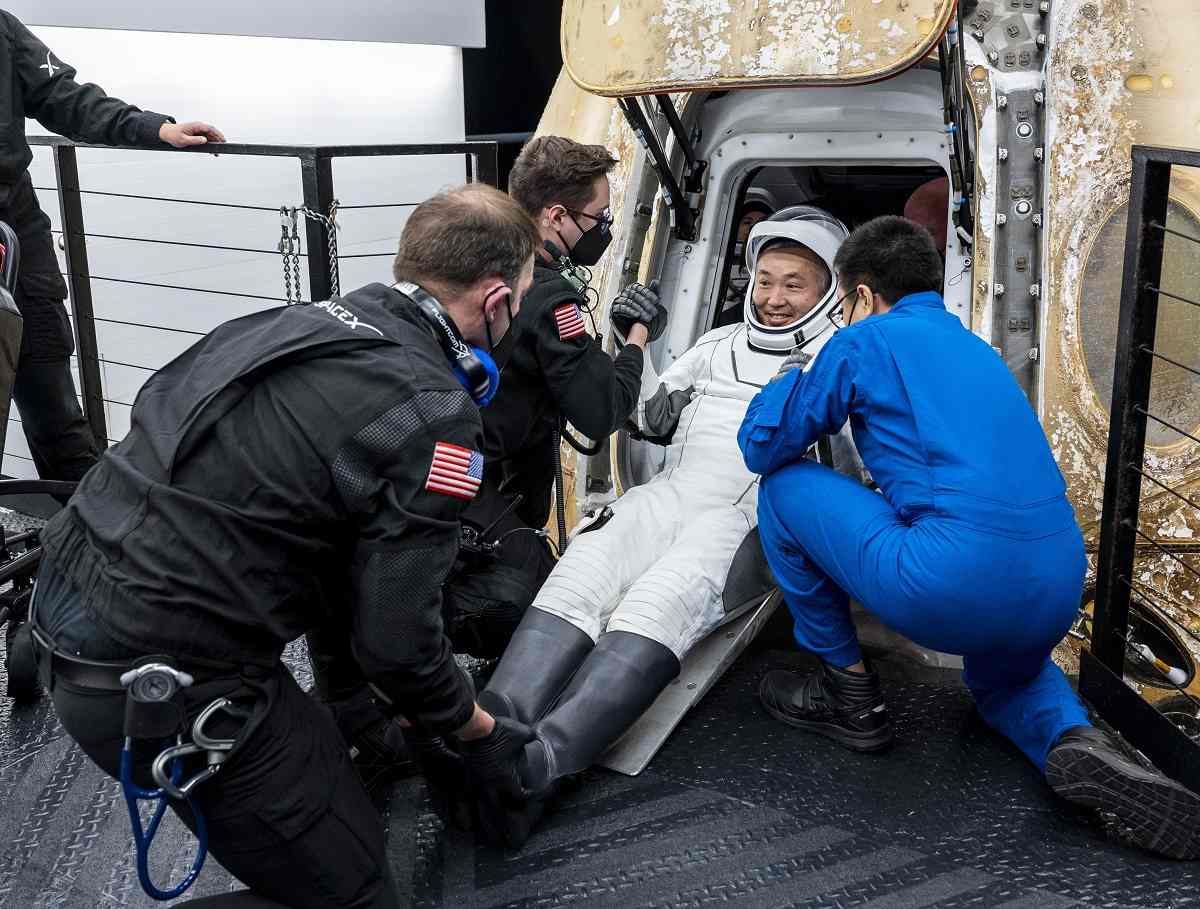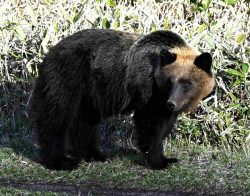
Japan Aerospace Exploration Agency (JAXA) astronaut Koichi Wakata is helped out of the SpaceX Dragon Endurance spacecraft onboard a recovery ship shortly after he, along with NASA astronaut Nicole Mann, Josh Cassada, and Roscosmos cosmonaut Anna Kikina, landed in the Gulf of Mexico off the coast of Tampa, Fla., Saturday, March 11, 2023, following a five-month mission on the International Space Station.
15:11 JST, March 12, 2023
Tokyo, March 12 (Jiji Press)—Japanese astronaut Koichi Wakata safely returned to Earth on Sunday Japan time after a five-month mission aboard the International Space Station.
The Crew Dragon capsule carrying Wakata and three other astronauts landed in waters off the U.S, state of Florida around 11 a.m. Japan time (2 a.m. GMT).
The capsule was pulled up by a ship, and the hatch was opened around 11:40 a.m. Wakata was the third to get off, smiling and looking healthy.
Wakata, 59, does not seem to have any particular health problems, according to the Japan Aerospace Exploration Agency, or JAXA.
Crew Dragon, developed by Space Exploration Technologies Corp., or SpaceX, was separated from the ISS at 4:20 p.m. Saturday.
After the final injection to leave the orbit around 10:10 a.m. Sunday, the capsule re-entered the atmosphere, opened the parachute and splashed down onto the sea.
Wakata, who traveled to space for the fifth time, arrived at the ISS in October last year. The latest mission has boosted the total number of days he spent in space to 504 days, the longest for a Japanese astronaut.
During his stay in the ISS, he carried out a number of experiments mainly in the Japanese experiment module Kibo.
He also engaged in activities considered useful for the international lunar exploration project Artemis, in which Japan is set to participate. These include the collection of basic technical data for a manned lunar vehicle under development and a demonstration test of a next-generation water recovery system.
In January and February, he conducted extravehicular activities, including the installation of a mounting platform for a new solar cell of the ISS. The first round marked his debut in extravehicular activities.
Wakata had boarded a U.S. space shuttle and a Russian Soyuz spacecraft before his flights aboard Crew Dragon. He has made round trips to space using all three types, just as his predecessors Soichi Noguchi, 57, and Akihiko Hoshide, 54, did.
Top Articles in Society
-

Producer Behind Pop Group XG Arrested for Cocaine Possession
-

Man Infected with Measles Reportedly Dined at Restaurant in Tokyo Station
-

Man Infected with Measles May Have Come in Contact with Many People in Tokyo, Went to Store, Restaurant Around When Symptoms Emerged
-

Woman with Measles Visited Hospital in Tokyo Multiple Times Before Being Diagnosed with Disease
-

Australian Woman Dies After Mishap on Ski Lift in Nagano Prefecture
JN ACCESS RANKING
-

Producer Behind Pop Group XG Arrested for Cocaine Possession
-

Japan PM Takaichi’s Cabinet Resigns en Masse
-

Man Infected with Measles Reportedly Dined at Restaurant in Tokyo Station
-

Israeli Ambassador to Japan Speaks about Japan’s Role in the Reconstruction of Gaza
-

Videos Plagiarized, Reposted with False Subtitles Claiming ‘Ryukyu Belongs to China’; Anti-China False Information Also Posted in Japan























